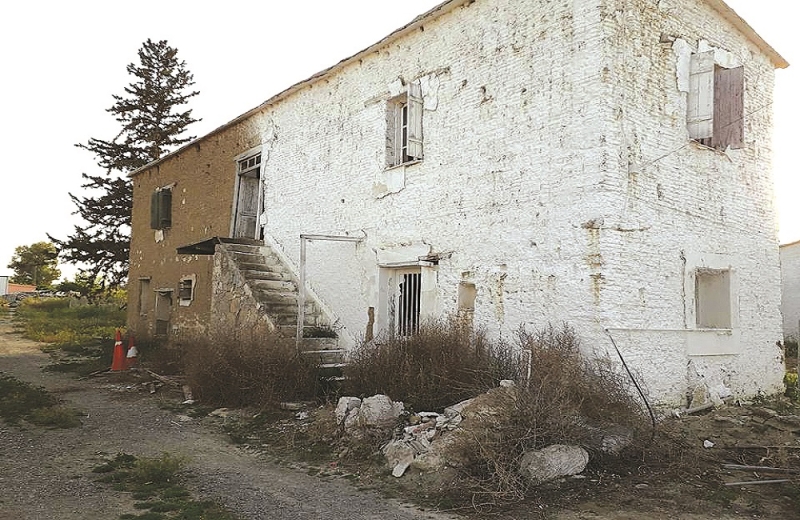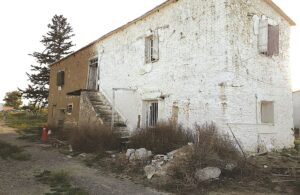
Tel .: 99966518
In a story written by our friend Dr. Bekir Azgin talks about bi-communal weddings in his village, Potamia. In an article on March 22, 2015 in the newspaper “Havadis” he briefly states:
“In my childhood, such marriages were acceptable & # 8211; normal. Of course, there were those who did not like such marriages, but because they were a minority, they could not raise their voice. When in the 50's with the orders of Makarios and with the money of the church, as the weapons started to enter the island secretly, things got worse. And after 1963 everything got out of control.
I can not imagine the lives of those who had a husband from the other community at that time. Probably people like them had a hard time finding a place to hide. I personally knew some people. One morning they woke up and were told they had to change their names, which they had for the last 50-60 years. Some became Ayshe, others Kadriye, others Dudu (Greek names were not acceptable, but Arabic names were).
Most of us are ignorant and some of us are ashamed to confess, but the truth is that in our village there were mixed marriages. One of the ones that comes to mind is that of Keziban Hanim, known in our village as “Kezibanu”. I do not remember her husband. He had two sons. One was called Mustafa and the other Loukaidis (I think he also had a daughter but because he had left the village at a young age I never met her). Since I had never thought about it and never asked, I guess Kezibanu was first married to a Turkish Cypriot and gave birth to Mustafa. Most likely, when her husband died (or they divorced), she married a Greek Cypriot and gave birth to Loukaidis. In those days it was very difficult to be a young woman and a widow.

An old house in Potamia & # 8211; Photo by Panikos Stylianou.
At a young age
Mustafa must have been about my father's age, since they were very good friends. Mustafa immigrated to Turkey at a very young age. There he made a living as a carpenter. When I was a student in Ankara, on one of my visits to Istanbul, I was hosted one night at their house. They were not rich but their doors were always open to the young people of our village.
I met Mustafa when I was in the last grade of elementary school. He had come to visit the village with his twin sons. I think they came to a wedding in the village, but I do not remember who. They also visited our house & # 8230; They spoke a little differently from us, but still & # 8217; we all understood each other well & # 8230; Mustafa asked me to take the twins to the village. Where can you get them in a village? So I took them to the pervolia of the village. I picked some berries for & # 8217; them. This was quite common for us, but for the kids in town it was great. When they left, one of the twins hugged me and said, “When we come next time, let's go to the pergolas again.” I do not know if they came again or not.
But I know that their father came twice more. It must have been in the late '70s or early' 80s. One day he came and found me and asked me if I could take him to Dhekelia. Of course I could, but I had never been to Dhekelia. “Do not worry,” he said, “to go to Pergamon and then there. I can explain to you how to go “. I was wondering why he wanted to go to Dhekelia from all places, but I did not ask him.
We met the day he asked me and we started the journey. He talked about his children, his job, his life in Istanbul, but said nothing about & # 8217; what I was wondering. He even talked about the memories he had with my father, who had died in 1976.
Finally, we arrived in Dhekelia. We parked the car in a suitable place. When he got out of the car, he said: “Wait here. I will be back soon “, and he left. A little later, he hugged Loukaidis. He took a sack out of the car and gave it to his brother.
I had not seen Loukaidis in the last 20 years. It had changed a lot. I remembered him as a young man playing football for the village team. He was a good player. I think he also played in Omonia at some point. Ibrahim from our village had also played in Omonia. And now, Loukaidis was standing in front of me with gray hair.
We sat somewhere and drank coffee. Loukaidis asked about some people from the village who were his friends. I shared with him what I knew. After the two brothers talked to each other about their children, their wives, their jobs. Then we ate lunch together somewhere there. Then Loukaidis brought his presents to the car and they parted with tears in their eyes.
I do not know if this was the last meeting the two brothers had or if they met again, but Mustafa died without seeing the opening of roadblocks.
On the way back, Mustafa was skeptical. At one point he turned to me and said, “Life is ruthless, my dear friend, a lot. I could not even attend my mother's funeral. Please, let us keep what happened today between us. “
And until today I kept it.
On the way back the question in my mind was:” Is life ruthless? or the people? ”
And in his article on April 5, 2015, Dr. Bekir Azgin referred to another mixed marriage:
“The imam (hodja) of our village was hadji Azmi and I remember him vaguely & # 8230; He had a white beard, was very thin and old & # 8230; I saw him in the mosque on Bairami day when I was going there & # 8230; He lived with Saffet's son and Stella, Saffet's wife. Their house was in the center of the village. What I liked most about him was when, after Bairami's prayer, he reconciled the villagers who did not speak to each other. I do not know if he was the one who started this ritual or if he saw it from previous generations. But after Bairami's prayer and namaz he said: Bairami means peace. Those who do not speak to each other, make peace now. “

Rivers & # 8230; & # 8211; Photo by Natalie Hami.
Reasons for Reconciliation
After Hadji Azmi died, we learned that there were no reconciliation rituals in other places. When the village was left without an imam, my father asked the mufti to send an imam at least during the Eid. They accepted my father's request and started sending imams (hodges) during Bairami. But because they did not know this ritual, the villagers prevented them from leaving the mosque and forced them to perform this ritual of reconciliation.
Saffet Hadji Azmi, the son of hadji Azmi, was known in the village as a fanatical communist. He was the leader and coach of our football team. In those days, the team was mixed and Turkish Cypriots and Greek Cypriots played in the same team. Under the pretext of playing football, he gathered young people to instill communism in them, and my father did not want me to go to the football club. But who cared about & # 8217; these as long as there was football.
Such was the old Cyprus.
River & # 8230; & # 8211; Photo by Panikos Stylianou.
I think his real job was as a carpenter, but I remember him as a clerk in the office of lawyer Umit Suleyman. He helped our villagers if they had a job in the courts.
Our villagers wanted to build a soccer field on top of a hill so we would gather on the weekends and go to work there. We carried stones and rocks out of the stadium. Saffet worked very hard at it and also played football despite his advanced age.
I had the opportunity to play football for our village youth team but never, not once, did I encounter communist propaganda there. If the example with his attitude can be called communist propaganda, yes that was the propaganda. (He was a member of AKEL).
Saffet and Stella had five or six children. “If I remember correctly, Stella had to change her name after she turned 60 and became Ayshe.”




